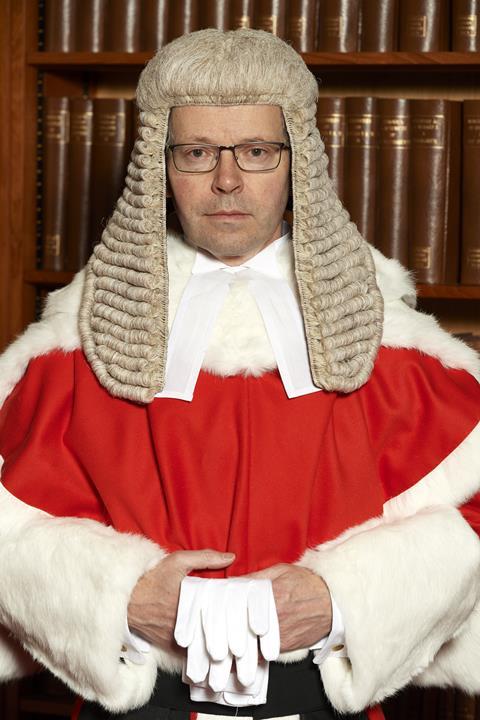The judge in the phone hacking trial between celebrities and Mirror Group Newspapers has taken the unusual step of awarding indemnity costs against both parties.
Mr Justice Fancourt acknowledged his decision was of an ‘exceptional nature’ but said this was reflective of the litigants’ approach to the case.
‘Each side has conducted this litigation in an extreme and confrontational way, pushing everything to the limits and sometimes exceeding them,’ the judge said in a ruling published last week. ‘It is that conduct on both sides that is reflected in the orders that I will make.’
The case has largely been reported in the media through the lens of Prince Harry’s legal fight against the Mirror newspaper's publisher (his costs were dealt with separately), but there were three other claimants: Coronation Street actors Michael Turner (stage name Michael Le Vell) and Nikki Sanderson, and Fiona Wightman, the ex-wife of comedian Paul Whitehouse.
The trial was divided into two parts: the generic claims of phone hacking and illegal information gathering by MGN, and the individual claims of people whose private information was accessed.

The judge ruled in December that all the claimants had been substantially successful in proving MGN’s unlawful conduct which lasted more than a decade.
But both Sanderson’s and Wightman’s individual claims failed on limitation grounds. Turner was successful on some grounds and was awarded £31,650 damages, but had also failed to beat Part 36 offers made by MGN at various times.
Dealing with costs, Fancourt said Sanderson and Wightman should pay the costs of the individual claims that had failed, adding that the costs of the generic claims should fall with MGN, which had sought to ‘defend the indefensible’.
He pointed out that MGN had made two ‘generous’ offers to settle before Sanderson’s individual claim was issued, for significantly more than the £67,500 that would have been awarded if limitation was not an issue. Instead, she had made her own offer to settle for £242,500 and was unwilling to settle for less. Sanderson also refused the offer of mediation and said she could not properly value her claim before full disclosure.
Turner did prove seriously wrongful conduct by MGN but he had also been unwilling to engage 'sensibly' and secured only limited success at trial. He was awarded costs only up to the first MGN settlement offer from 2022.
Fancourt said he was concerned at the way Sanderson and Turner had conducted their claims, with pleadings and witness statements often appearing to say what was needed to advance the claims rather than what could be properly recalled.
The judge said the individual claimants had shown a ‘serial failure’ to limit themselves to the relevant facts rather than argue the merits of their cases.
‘I understand the additional difficulty of settling claims when MGN was in default of its disclosure obligations, but that issue does not justify a claimant in sitting tight, not cooperating or negotiating at all and hoping that something will eventually turn up to support the more outlandish claims made,’ added Fancourt. ‘By definition, settlement negotiations are not a valuation exercise done with the accuracy that might result from a full trial.’
On Sanderson, the judge said the court should ‘lay down a marker for the consequences of misleading and exaggerated claims’ and an ‘unreasonable attitude to settlement’. Turner’s claim was similarly exaggerated and unrealistic and he had not taken the option of dropping what were ‘hopeless allegations’. MGN sought only standard costs against Wightman and the judge did not comment on her case.
Sanderson and Turner were both ordered to pay their individual costs on the indemnity basis, as was MGN on the costs of the generic trial issues.
The judge ordered that MGN paid an interim £1.9m to the claimants, while Sanderson, Wightman and Turner must pay sums ranging from £95,000 to £110,000 to MGN.
This article is now closed for comment.



























6 Readers' comments